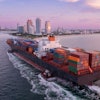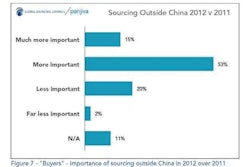
Impacts of global climate change continue to shape the development of numerous global regions. But when it comes to the Arctic region, there is a significant level of environmental and economic uncertainty, according to a new report from international analysis firm Chatham House, London. Risk management of such common activities in this region as deep water drilling and ice management requires current information to analyze and control these risks.
Despite the uncertainties, the combination of global source consumption—fisheries, minerals and oil and gas—climate change and technological progress position the Arctic region as a commercially available and attractive area of development.
And if current patterns of growth continue—such as the expansion of intercontinental shipping, tourist activity and the exploration of wind and hydro-power potential—investment in the Arctic could reach $100 billion or more over the next decade. However, given the high risk and potentially high reward nature of Arctic investment, this figure could be significantly higher or lower.
Additional key findings of the “Arctic Opening” report, by Charles Emmerson and Glada Lahn, include:
- Rapid and disruptive change in the Arctic environment presents uneven prospects for investment and economic development. All across the Arctic, changes in climate will create new vulnerabilities for infrastructure and present new design challenges.
- Uncertainties and knowledge gaps exist around the nature of environmental change, the geological potential of the Arctic and environmental baselines, as well as seabed mapping, and how to deal with the risks of significant Arctic industrial activity.
- Arctic conditions will remain challenging and often unpredictable. Many of the operational risks to Arctic economic development – particularly oil and gas developments, and shipping – amplify one another. At the same time, the resilience of the Arctic’s ecosystems to withstand risk events is weak, and political and corporate sensitivity to a disaster is high.
- The environmental consequences of disasters in the Arctic are likely to be worse than in other regions.
- Given the Arctic's iconic status and sensitive environment, Arctic development is often politically contentious, with sometimes opposing interests and perspectives between local, national and international levels. Political support for development will continue to represent an uncertainty for businesses seeking to invest in Arctic projects.
- The challenges of Arctic development demand coordinated responses where viable, common standards where possible, transparency and best practice across the north. These frameworks need to be in place to enable sustainable development and uphold the public interest.
- Companies operating in the Arctic require robust risk management frameworks and processes that adopt best practice and contain worst case scenarios, crisis response plans and full-scale exercises.
For more report details, visit http://bit.ly/HDSRxo.















